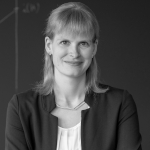Set Theory in the United Kingdom is a research network in set theory that was formed in 2018 and has been funded by two Scheme 3 grants of the London Mathematical Society and an INI Network Support grant by the Isaac Newton Institute for Mathematical Sciences.
The members of the network are the Universities of Bristol, Cambridge, East Anglia, Leeds, Oxford, Warwick and University College London. The current coordinators are Andrew Brooke-Taylor (Leeds) and Benedikt Löwe (Cambridge).
STUK 9 is the ninth installment of the series and will take place at Churchill College, Cambridge on Tuesday, 7 March 2023. Talks will be in the Bevin Room: when entering the College through the main gate, go straight ahead along the Concourse to the end, turn left, and leave the building through a glass door, use the covered walkpath to the opposite building; the Bevin Room is one of the seminar rooms accessible from the foyer of the building.

|
Juan Aguilera (Cambridge, Gent, Hamburg, Vienna) Non-linearities in the analytical hierarchy | 
| |||||||||||||||||
|
Sandra Müller (Vienna) Large Cardinals & Determinacy. | |||||||||||||||||||
|
Abstract. TBA. |
Abstract. TBA. | ||||||||||||||||||
| |||||||||||||||||||
Juan Aguilera (Cambridge, Gent, Hamburg, & Vienna. Non-linearities in the analytical hierarchy.
It is commonly known that there exist true \(\Pi^0_1\) sentences which are mutually independent over theories such as \(\mathsf{PA}\). The analog of this fact for \(\Pi^1_1\) fails: there do not exist true \(\Pi^1_1\) sentences which are mutually independent over theories such as \(\mathsf{PA} + \{\varphi\,;\,\varphi\) is a true \(\Sigma^1_1\) sentence\(\}\) We study the corresponding situation for \(\Sigma^1_n\) and \(\Pi^1_n\) under assumptions such as \(\mathbf{V}{=}\mathbf{L}\) or large cardinals. This is joint work with F. Pakhomov.
Sandra Müller (Vienna). Large Cardinals & Determinacy.
Computing the large cardinal strength of a given statement is one of the key research directions in set theory. Fruitful tools to tackle such questions are given by inner model theory. The study of inner models was initiated by Gödel's analysis of the constructible universe L. Later, it was extended to canonical inner models with large cardinals, e.g., measurable cardinals, strong cardinals or Woodin cardinals, which were introduced and studied by Jensen, Mitchell, Steel, Woodin, Sargsyan, and others. We will outline the role universally Baire sets play in the study of inner models and their connections to determinacy axioms. In particular, we will discuss recent results on Sealing, a formalization due to Woodin of the statement that the theory of the universally Baire sets cannot be changed by forcing.
 |
 |
| EPSRC EP/V521929/1 |